
Mammals Around Las Vegas, Wildlife Around Las Vegas
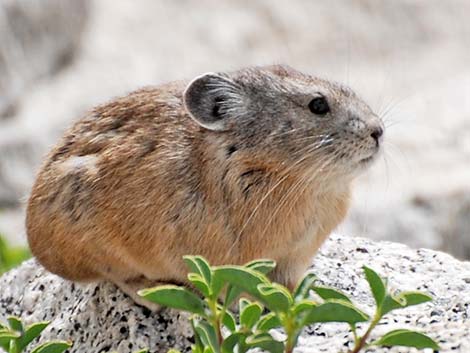 |
General Information: American Pikas (Ochotona princeps) are small, tail-less, fluffy little mouse-like creatures of rocky, high mountain meadows. They are related to rabbits, but they have small, rounded ears and no visible tail. They are brownish to grayish and 6-8 inches long with quite a loud bark. Taxonomy: Order: Lagomorpha (Rabbits and Relatives); Family: Ochotonidae (pika). Breeding: Starts breeding in the spring and produces offspring after about 30 days gestation throughout the summer. Diet: Vegetation; primarily grasses and forbs. Pika harvest grasses and forbs, dry them in haystacks under overhanging rocks, and store them for the winter. While pika are known for mainly harvesting grasses and tasty annual plants, they also take more substantial perennial forbs and shrubs. In Yosemite, they harvest shrubby penstemon and even high-elevation shrubby oaks. |
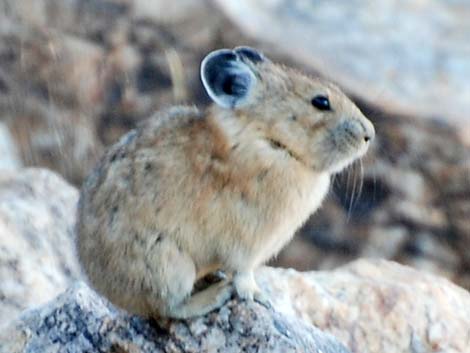 |
Range: Pikas occur at the highest elevations in the Sierra and Cascade Mountains from California to Washington, in the Rocky Mountains from New Mexico to Washington, and then northward into central British Columbia and Alberta, always at the highest elevations. Collared Pika (Ochotona collaris) live farther north into Alaska. Where to Find: Don't look for Pika around Las Vegas. Instead, head for the high mountains of California, northwestern Nevada, and across central Nevada to northeastern Nevada (including the Ruby Mountains). |
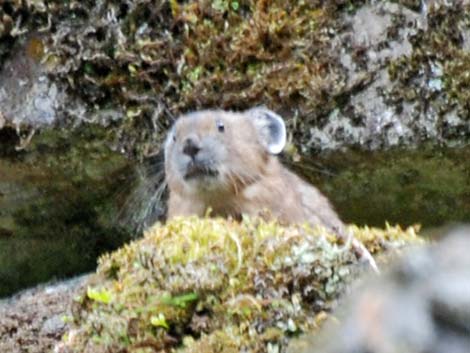 Pika at low elevation in the Columbia River Gorge |
Comments: Pikas are an interesting study in the potential effects of Global Climate Change. Pike live only in the highest mountains of Nevada. As environmental conditions change, scientists expect the climate in Nevada to become more warm and dry. If this happens, pika will be forced to retreat into higher and higher places where it is still cool enough for them. As conditions warm and dry, pika may run out of high-enough places and go extinct in this state. It is interesting that an isolated, remnant population of American Pika have adapted to live in the Columbia River Gorge just east of Portland, Oregon, at elevations only a few hundred feet above sea level. This population lives only in the rockslides and cliffs on the cool, shady south side of the river, but it is reassuring that some of our Nevada pika might survive climate change if they can find similar cool places. Not the best photo, but this American Pika was photographed in the Columbia River Gorge east of Portland, Oregon. This small population lives at an unusually low elevation for this species. |
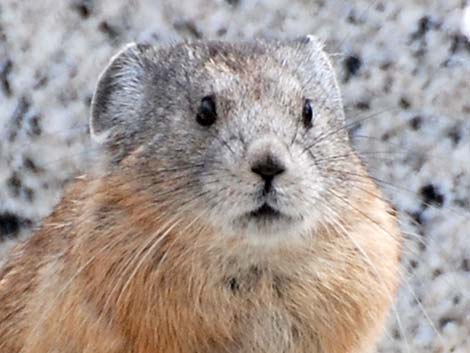 |
If you were a tasty flower or a little stem of grass, this might be the last face you ever see! |
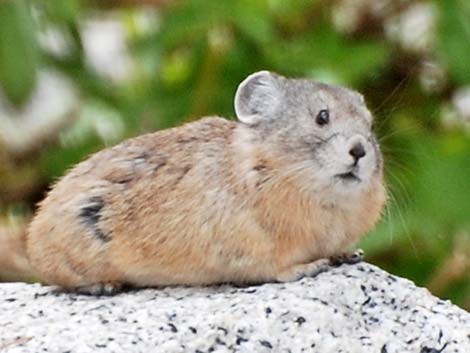 |
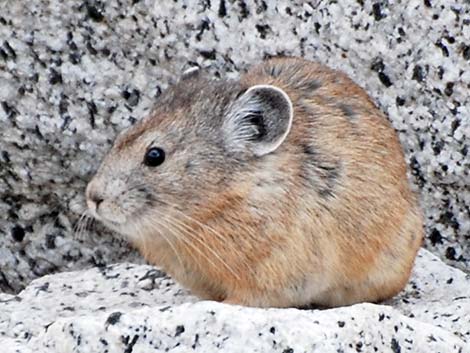 |
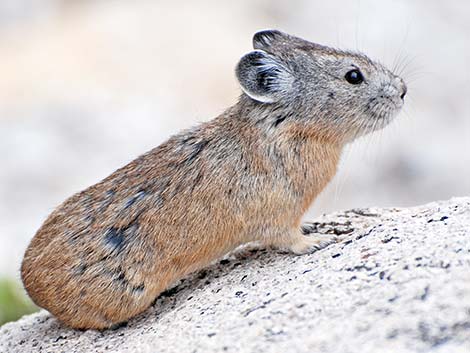 Reddish fur on the body |
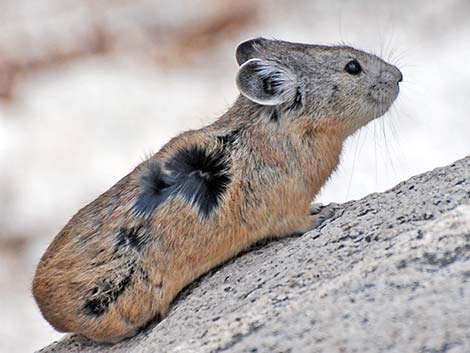 Wind reveals dark under-fur |
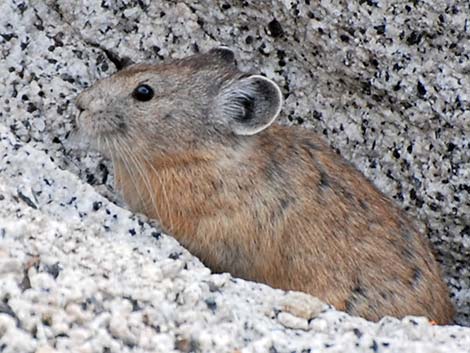 |
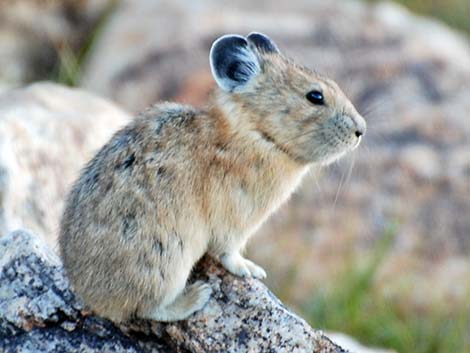 |
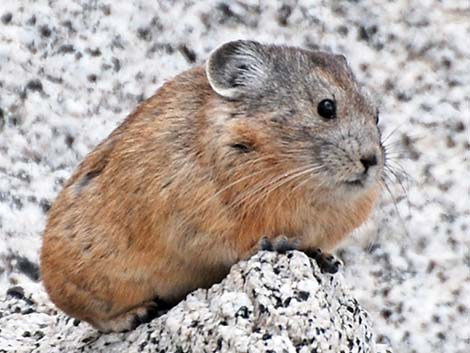 |
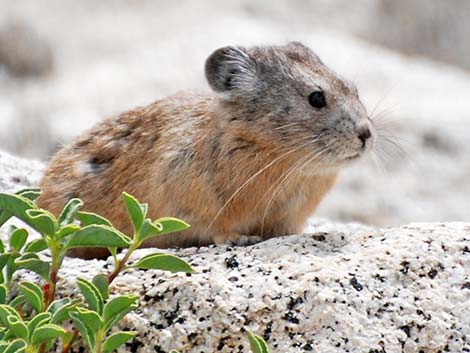 |
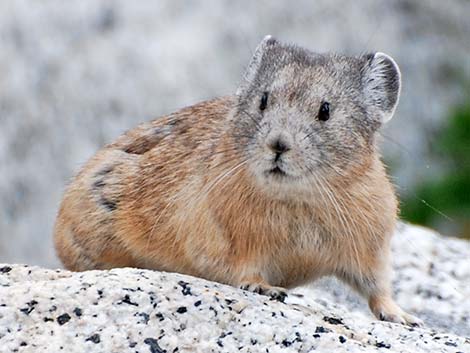 American Pika |
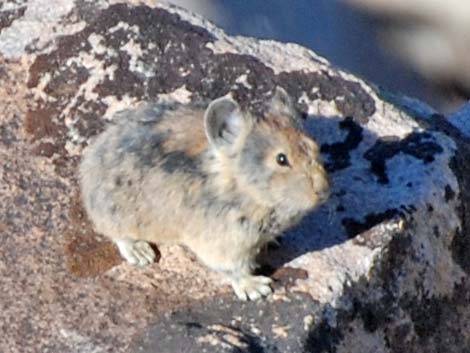 Note molt line where adult pelage is growing in the center of the back |
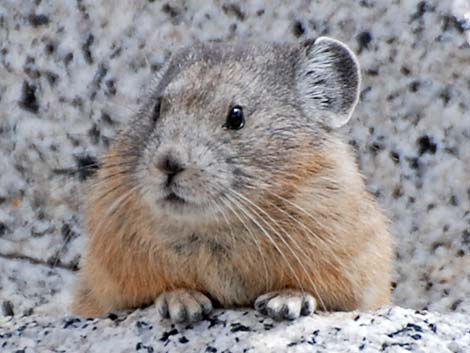 |
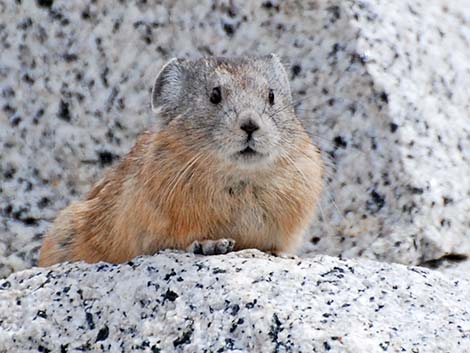 |
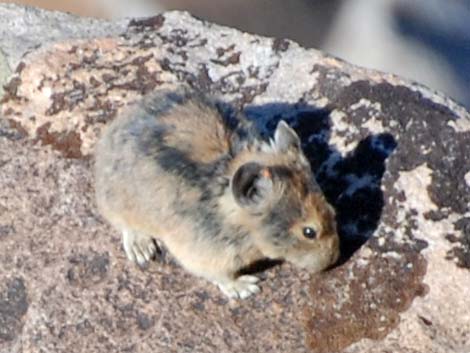 Note molt line where adult pelage is growing in the center of the back |
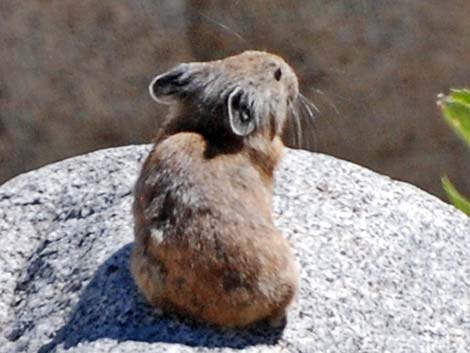 Full summer pelage |
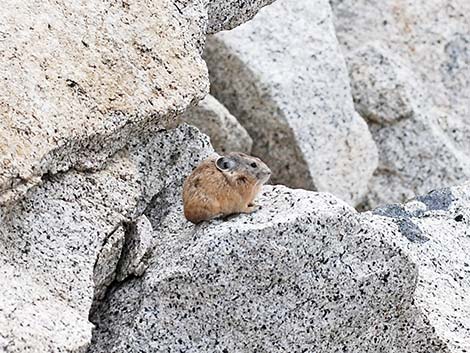 Pika in rocky, alpine habitat |
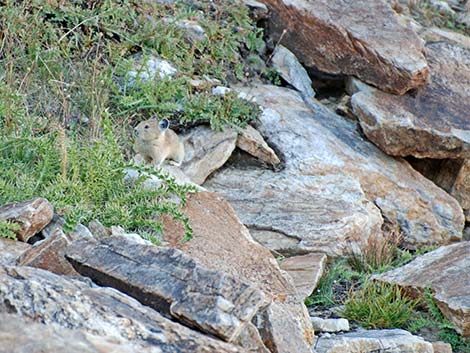 Pika in rocky, alpine habitat |
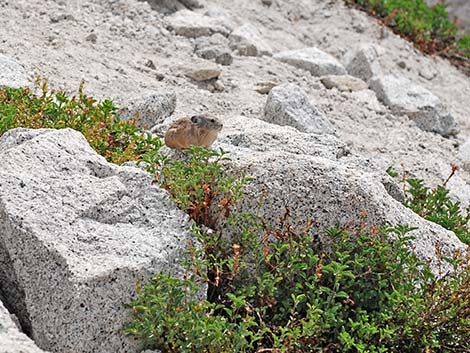 Pika in rocky, alpine habitat |
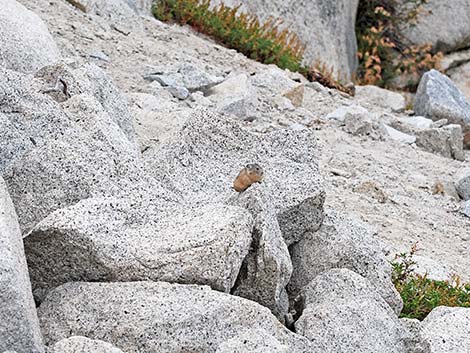 Pika in rocky, alpine habitat |
Collecting vegetation and carrying it back to an underground haystack
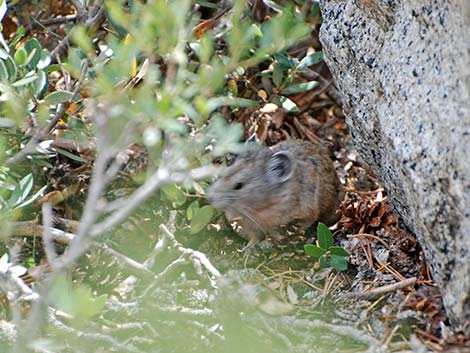 American Pika harvesting shrubby oak |
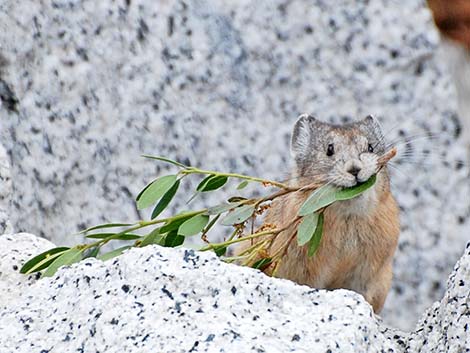 Pika carrying shrubby oak back to its rock pile |
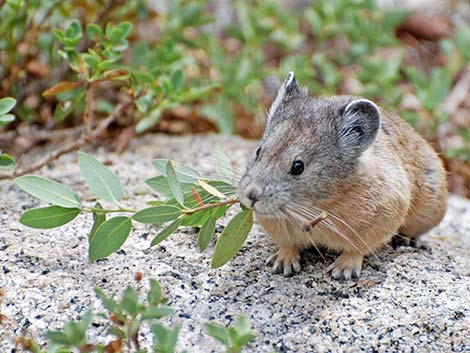 Pika carrying shrubby oak back to its rock pile |
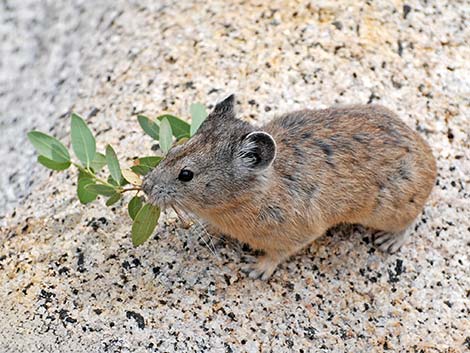 Pika carrying shrubby oak back to its rock pile |
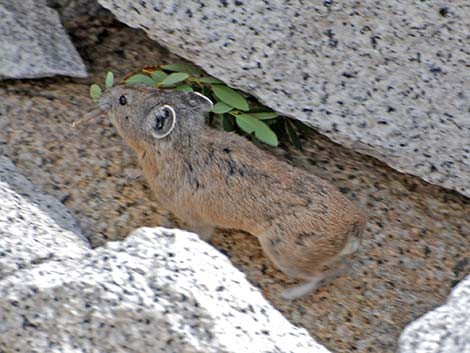 Pika carrying shrubby oak back to its rock pile |
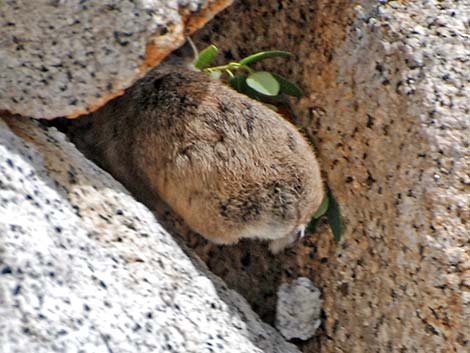 Pika carrying shrubby oak back to the haystack under the rocks |
Note: All distances, elevations, and other facts are approximate.
![]() ; Last updated 231228
; Last updated 231228
| Mammals Around Las Vegas | Wildlife Around Las Vegas | Glossary | Copyright, Conditions, Disclaimer | Home |